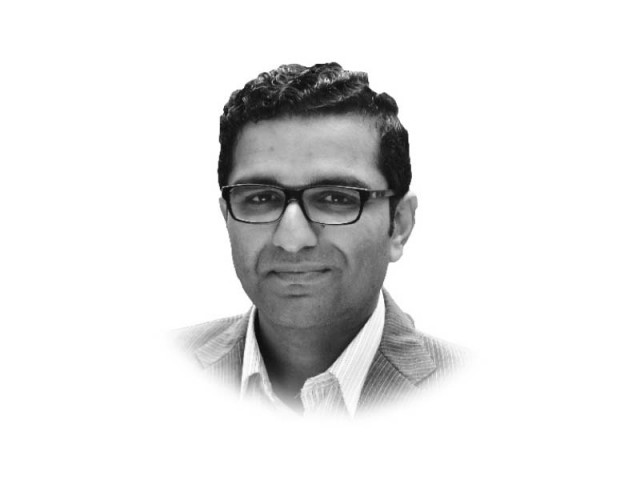Pakistan’s Heart
We Pakistanis are a very emotional people generally

The writer teaches at IT University Lahore and is the author of ‘A Princely Affair: The Accession and Integration of the Princely States of Pakistan, 1947-55.’ He tweets at @BangashYK.
While at the ground level these lauded expectations were high, the rulers of the day knew the reality. The astute founder of the country spent most of his first speech to the Constituent Assembly talking against corruption, black marketeering, jobbery, etc., and very soon, in 1949, the infamous, Public and Representative Office Disqualification Act, came into force.
The incorruptible Indian Civil Service of the Raj now seemed to have succumbed to its humanity as the Pakistan Administrative Service (later the Civil Service of Pakistan) and the honest men of the All India Muslim League had left most of their honesty as evacuee property in India.
A more recent glimpse into reality in Pakistan has been given to us by the Quetta Commission Report penned by the erudite Justice Faez Isa. While enough has been written on its justified criticism of the security agencies and the authorities, it is the reaction of the people, especially at the scene of the second blast at the Sandeman Hospital which surprised me the most.
In paragraph 17.1 Justice Isa noted: ‘The injured and the uninjured lawyers testified that, except for a notable exception, doctors and other staff of the Hospital did not render medical or any assistance to those lying wounded at the blast site… There were a few exceptions; the only one, of whom it can be stated with certainty, to have rushed to the blast site, and to have provided first aid was Dr. Shehla Sami… She ran towards the blast site while everyone else was running away from it.’ Now let this sink in.
Rather than helping the blast victims who were literally at the doorstep of the hospital, most doctors, nurses and paramedics ran away from it. The doctors who had taken the Hippocratic Oath to serve humanity forgot it in the blink of an eye and ran away from helping not terrorists, not foreigners, not even members of another ethnic group or religion — but their own people. This coupled with the recent death of a woman in Lahore on the floor of a hospital, shows us the callous disregard towards human life we are now taking as normal in Pakistan.
We Pakistanis are a very emotional people generally. We tend to analyse things more from the heart than from the brain and hence end up with largely skewed versions of reality.
While having a heart and using it in the right manner is divine, yet divesting the cerebral function of it is fatal, and sadly we have been indulging in it since our inception.
Pakistan was born with high hopes, but it was inhabited by human beings who were beset with human weaknesses and follies. Even in 1947 when a sea of refugees was entering Pakistan, without food or shelter and having lost loved ones, there were enough people around who thrived off their misery.
However, rather than accepting and correcting these people as our own, we quickly tried to disown them as ‘fifth columnists,’ ‘Indian agents,’ and, as it suited the government, ‘Communists,’ ‘Red Shirts’, etc. We never accepted that there is a real heart of darkness growing within us which needs to be transformed, and that without its change Pakistan will never fully succeed.
Pakistan will soon be seventy, and seventy is indeed an important birthday. By this time most countries are supposed to have matured and stabilised to a certain degree. However this maturity will only come if we accept our own shortcomings and weaknesses and ameliorate them.
There is the development of roads, bridges, power plants, and yes even the China-Pakistan Economic Corridor, yet there is a greater development of the heart — where the citizens of the country love one another as their own, where blame is not hurled on others but introspection leads to positive change, where all work together for the country not only their founder envisaged, but also where they would want their children and grandchildren to peacefully live in. That is the Pakistan we must strive to make, that is the new heart we must build for our country.
Published in The Express Tribune, January 21st, 2017.
Like Opinion & Editorial on Facebook, follow @ETOpEd on Twitter to receive all updates on all our daily pieces.















COMMENTS
Comments are moderated and generally will be posted if they are on-topic and not abusive.
For more information, please see our Comments FAQ